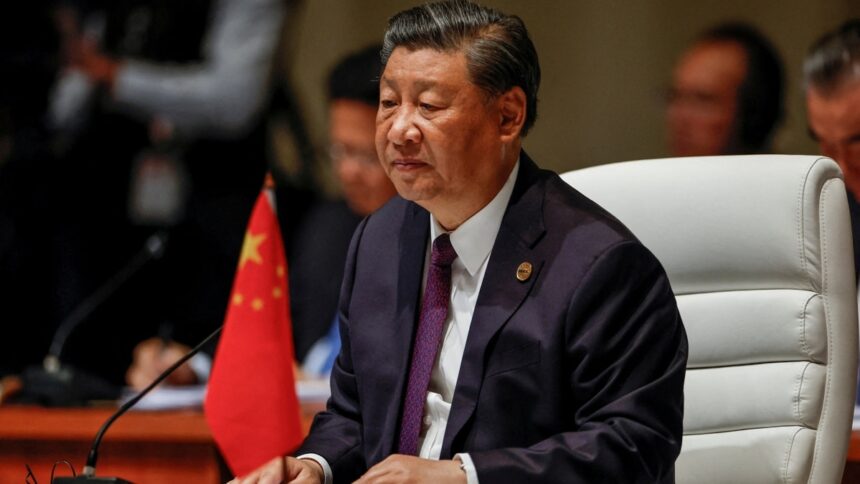China on Monday made it official that its President Xi Jinping will not be attending the G20 Summit in New Delhi, the latest in a series of moves by Beijing that make it clear that the two Asian giants are not getting along. Beijing has so far opposed many proposals put forward by India at several G20 meetings held earlier this year. And as India gears up for the mega summit later this week, China’s ‘obstructionist’ attitude is likely to endanger the final outcome and ‘joint communique’, which requires consensus – which will be the biggest challenge for New Delhi. China will be represented by Premier Li Qiang, the number two in Beijing and close aide of Xi Jinping.
With Beijing taking divergent views on almost all issues, New Delhi may have a tough time bringing out a consensus document at the end of the summit. The joint communique may also become difficult as the West would most likely push for a mention of Russia’s actions in Ukraine, while China has been maintaining that no geopolitical issues should not be included in the statements.
India and China have been at odds for decades due to disputed borders but the latest conflicts in Eastern Ladakh have worsened their bilateral relations. Now these fissures are coming out in the open, with China objecting to matters even less consequential in a larger global perspective like the slogan of the summit and its language.
In August, India Today reported that China had voiced its opposition towards the inclusion of the Sanskrit phrase ‘Vasudhaiva Kutumbakam’ in documents of the G20 Energy Ministerial Meeting and other G20 documents. ‘Vasudhaiva Kutumbakam’ is a Sanskrit phrase, which means ‘the world is one family’. However, China had a problem with this phrase while other nations firmly backed India.
Not just high-profile issues such as Ukraine and climate change, Beijing has also objected to matters such as Mission LiFE (Lifestyle for Environment), women-led development, and MSMEs. China reportedly obstructed discussions on tackling climate change at Group of 20 meetings. However, China’s foreign ministry said it was “completely inconsistent with the facts”.
The fear that a joint communique may not come at the end of the two-day summit is a reflection of what has happened in the past few meetings where no consensus could be achieved due to opposing views. Barring a few countries, the group is currently divided over a host of issues with the US on the one side and Russia on the other.
India has been trying to find a way out and reach a consensus but China may not relent on its stand considering any success may increase New Delhi’s stature.
In March this year, the G-20 foreign ministers’ meeting ended without a joint communique as Russia differed with the West over the war in Ukraine. Moscow objected to para, which said the war in Ukraine had further “adversely impacted the global economy”.
In July, the G20 finance ministers concluded their meeting without any joint statement but India released a chair’s summary and outcome document. Here too, the differences were between the West and Russia-China in the war in Ukraine.
Similarly, the G20 health ministers’ meeting, too, ended without a joint statement as China said “G20 is not the right platform to address security issues and opposed the inclusion of geopolitical-related content”. The grouping also failed to agree on issues like cutting emissions and fossil fuel use, as well as climate finance to support poorer nations.
Speaking to India Today, US Ambassador to India Eric Garcetti said, “There could be a middle ground where there can be a footnote for the opposing countries or country (on Russia-Ukraine war), but that the rest of the world clearly sees aggression knows aggression and stands against aggression. But the endeavour of India is to arrive at a consensus.”
Garcetti said that he was hopeful that there would be a formula that would be successful in drawing a consensus document. “It’s the chair’s responsibility to bring that together, but I have a high level of confidence that India’s relationships with multiple nations can bring that together. And I hope that other countries will defer to India’s leadership.”
According to some experts, China’s stance could be a calculated move to prevent India from claiming any form of “success” at the end of its G20 presidency. This is crucial as it was India that played an important role in achieving a consensus at last year’s summit in Bali.
Besides Xi, Russian President Vladimir Putin will also not be traveling to India for the G20 Summit. Russia will be represented by Foreign Minister Sergey Lavrov.
(With inputs from Geeta Mohan)








